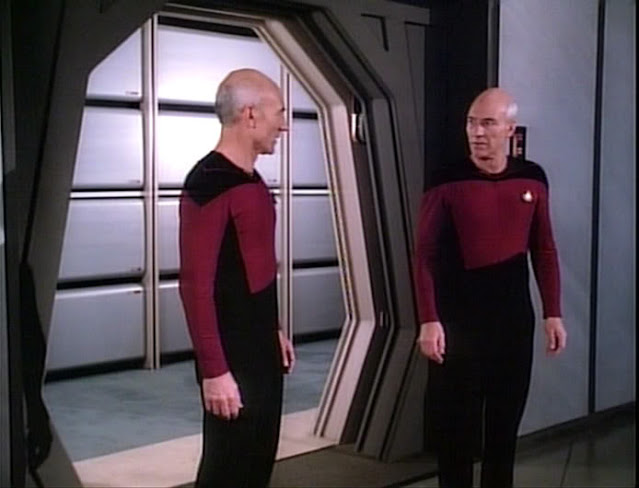A temporal paradox, time paradox, or time travel paradox is a paradox, an evident contradiction, or logical contradiction related to the time a lot of travel. In material science, temporal paradoxes fall into two general gatherings: consistency paradoxes exemplified by the granddad paradox; and causal loops. Other paradoxes related to time travel are a variety of the Fermi paradox and paradoxes of through and through freedom that comes from causal loops like Newcomb's paradox.
A causal loop is a strangely basic paradox of time travel that happens when a future occasion is a reason for a previous occasion, which thusly is the reason for the future occasion. The two occasions then, at that point exist in spacetime, yet their starting point is not set in stone. A causal loop might include an occasion, an individual or item, or data. The terms boot-tie paradox, fate paradox, or ontological paradox are sometimes utilized in fiction to allude to a causal loop.
Also read: How Is The Study Of Microfluidics Applied In Agriculture?
The consistency paradox or granddad paradox happens when the past is changed in any capacity, in this way making a contradiction. On the off chance that a time traveler was at any point to return in time and kill their granddad in his adolescence, it would bring about one of the time traveler's folks, and thus the time traveler, not being conceived. On the off chance that the time traveler was not conceived, it would not be workable for them to kill the granddad in any case. Hence, the granddad lives to posterity the time traveler's folks, and consequently the time traveler. There is, subsequently no anticipated result to this. Consistency paradoxes happen at whatever point changing the past is conceivable.
A potential goal is that a time traveler can do whatever occurred, yet can't do whatever didn't occur. Accomplishing something that didn't occur brings about a contradiction.
The Fermi paradox can be adjusted for time travel, and stated: "if time travel were conceivable, where are altogether the guests from the future?" Answers change, from time travel not being conceivable, to the likelihood that guests from the future can't arrive at any subjective point before, or that they camouflage themselves to stay away from the location.
Newcomb's paradox is a psychological study showing an evident contradiction between the normal utility standard and the essential strength rule. The psychological study is frequently stretched out to investigate causality and through and through freedom by taking into consideration "wonderful indicators": if ideal indicators of things to come to exist, for instance on the off chance that time travel exists as a component for making amazing forecasts, amazing expectations seem to repudiate choice since choices clearly made with choice are now known to the ideal indicator.
For reasons unknown or another, you have chosen to return in time and kill your granddad in his childhood. Better believe it, sure, obviously, you love him – however, this is a logical test; you don't have a decision. So your grandma won't ever bring forth your parent – and accordingly, you won't ever be conceived, which implies that you can't kill your granddad. Goody gumdrops! This is a serious contradiction!
The lengthy variant of the paradox addresses essentially each and every change that our theoretical time traveler will make previously. In a tumultuous reality, who knows what the outcomes of each progression will be on the truth you came from. Similarly, as a butterfly fluttering its wings in the Amazon could cause a twister in Texas, there is no chance of foreseeing what one wrong action on your part may do to the entirety of history, not to mention an uncommon move like killing somebody.
There is a potential answer for this paradox – yet it counterbalances choice: Our time traveler can just do what has effectively been finished. Sorry don't as well – all that you did in the past has effectively occurred, so it's unimaginable for you to kill grandpa, or make any kind of a contradiction in some other manner. Another arrangement is that the time traveler's activities prompted a parting of the universe into two universes – one in which the time traveler was conceived, and the other in which he killed his granddad and was not conceived.
Data entry from the future to the past causes a comparative paradox. Suppose somebody from the future who has my wellbeing as a primary concern attempts to caution me that a fantastic piano is going to fall on my head in the road, or that I have a kind of malignant growth that is treatable in case it's found early enough. As a result of this notice, I could find ways to forestall the occasion – however, at that point, there is no motivation to send back the data from the future that saves my life. Another contradiction!
In 1950, over lunch physicist Enrico Fermi broadly inquired: "Assuming there is smart extraterrestrial life in the Universe – where are they?" demonstrating that we have never met outsiders or ran over proof of their reality, for example, radio signs which would be verification of a technological society. We could suggest that equivalent conversation starter no time like the present travelers: "If time travel is conceivable, where are constant travelers?"
The inquiry, known as the Fermi Paradox, is a significant one. All things considered, in case it was feasible to travel through time, would we not have caught a lot of onlookers from the future at basic crossroads ever? It is probably not going to expect that they all figured out how to impeccably mask themselves, without making any mistakes in the plan of the garments they wore, their accents, their jargon, and so forth Another alternative is that time travel is conceivable, however, it is utilized with the most extreme consideration and tight control, because of the multitude of risks we examine here.
On June 28, 2009, physicist Stephen Hawking did a logical investigation that was intended to respond to this inquiry unequivocally. He brought bites, inflatables, and champagne and facilitated a mysterious gathering for time travelers just – however, conveyed the solicitations just on the following day. If nobody appeared, he contended, that would be verification that time travel to the past is beyond the realm of imagination. The invitees neglected to show up. "I sat and hung tight for some time, however, no one came," he revealed at the Seattle Science Festival in 2012.
Numerous time travelers likewise subvert the chance of a fixed and predictable timeline, expecting that the past can undoubtedly be changed. Envision, for instance, a nail-gnawing derby between the top clubs, Hapoel Jericho and Maccabi Jericho. Initially, Maccabi won, so a Hapoel fan traveled back in time and figured out how to prompt his group's triumph. Maccabi fans would not surrender and did likewise. Before long, the entire arena is occupied with time travelers and paradoxes.








0 Comments
Thanks for your feedback.